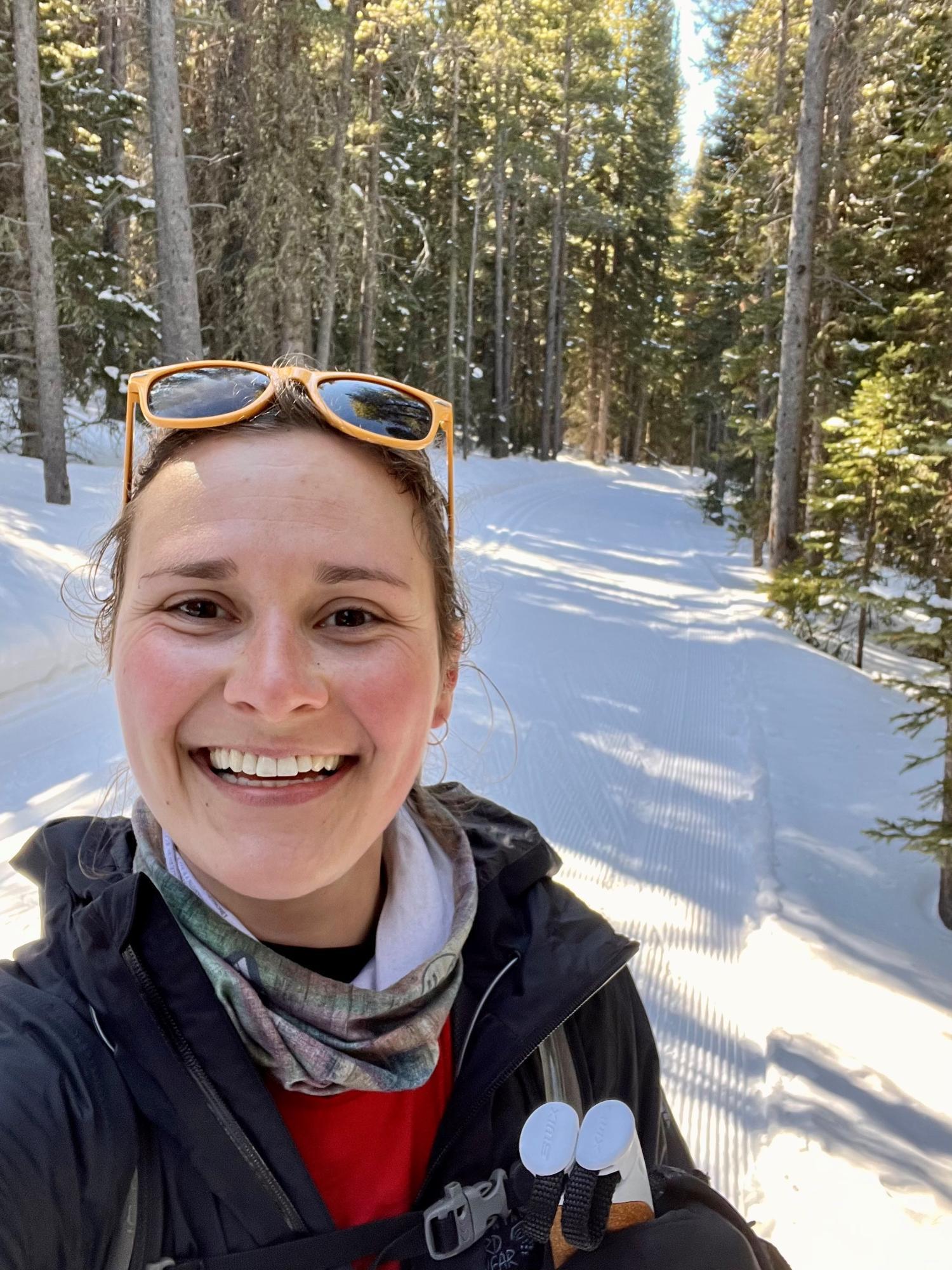Alumni profile: Gaining a deeper understanding of the energy industry

- Name: Anne Hamilton (MElEngr'22)
- Professional master's subplan: Next Generation Power and Energy Systems
Tell us a little about your professional and educational background.
I received my BA in physics from Carleton College in 2018. After graduating, I worked as a process engineer for a wind blade manufacturing company in Iowa for about a year before deciding that I wanted to pursue my master’s. During my master’s, I did a variety of internships and part-time work ranging from working for a nuclear fusion startup, a battery consulting company and a DER aggregator, giving me perspective on a few different aspects of the energy industry.
What made you decide to pursue a professional master’s in power and energy systems at CU Boulder?
I decided to pursue a master’s in power and energy systems at CU because I wanted to get a deeper understanding of the energy industry and the power grid. At my job as a process engineer, I loved the hands-on work, but I was focused on one specialized component of energy, optimizing the production of wind blades. Beyond our doors, I had a limited understanding of where that wind turbine blade went or how it contributed to the power system as a whole. That is what I wanted to understand. I wanted a degree in electrical engineering so that I would have the technical background for any future career; however, I also wanted to learn about energy policy, grid operations, data analytics and some of the less technical aspects of the energy industry. The wide breadth of courses in the master’s at CU is one of the main reasons I chose to enroll. I also loved the strength of the national labs in the Front Range and the commitment to sustainability in Colorado.
What is the most interesting thing you learned or explored during your time in the program?
I really enjoyed my Power System Analysis course which taught the fundamental principles of traditional bulk power systems. It was possibly the most fundamental background needed for the rest of the degree, but since I did not do an electrical engineering undergraduate degree, I didn’t come in with an understanding of the transmission vs. distribution network, single vs. three phase powers, AC vs. DC power flow formulations, etc. This course opened the doors to the rest of the program and highlighted to me the sheer complexity of the grid.
Tell us a little about what you’re doing now at the National Renewable Energy Lab.
I’m a power systems modeler and analyst at NREL in the Grid Planning and Analysis Center (GPAC). My work is predominantly with the Regional Energy Deployment System (ReEDS), one of NREL’s capacity expansion models, which we use to model what the grid could look like in the next few decades in terms of the capacity and generation mix, emissions and cost. Some of my recent work is focused on more accurately modeling hydrogen production in ReEDS as well as comparing various nationwide transmission expansion options.
What advice would you give to someone who is considering pursuing a professional master’s in power and energy systems?
I would recommend that they take advantage of their electives. Whether they come into the program knowing exactly where they want to end up after their degree or if they have a more exploratory approach, they can really tailor the curriculum to what they are looking for. The energy industry has a large amount of overlap with computer science, mechanical engineering, material science, etc. and the programs at CU feature a strong electrical engineering core with the flexibility to take high level courses in other departments.
When you’re not working, what do you like to do?
I am a classic Coloradan in that I love to be outdoors, whether that is backpacking, road biking, snowboarding or just sitting in a hammock on one of Colorado’s many sunny days. I also enjoy language learning and wood burning, my attempts to counterbalance the analytical side of my brain.

